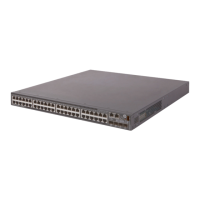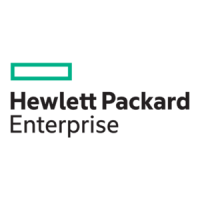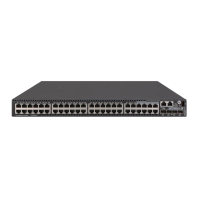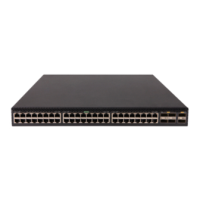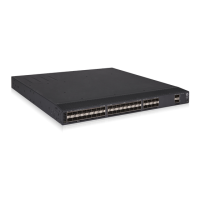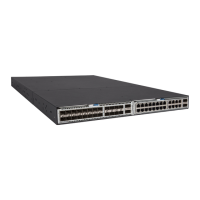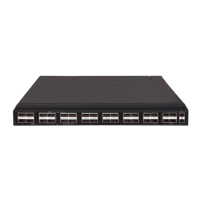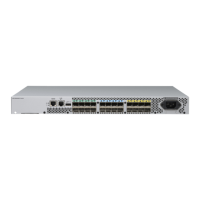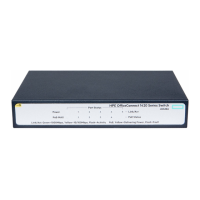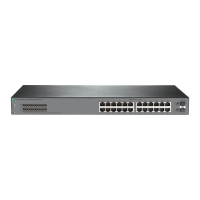51
Configuring the DHCP server to send BOOTP responses in
RFC 1048 format
About configuring the DHCP server to send BOOTP responses in RFC 1048 format
Not all BOOTP clients can send requests that are compatible with RFC 1048. By default, the DHCP
server does not process the Vend field of RFC 1048-incompliant requests but copies the Vend field
into responses.
This feature enables the DHCP server to fill the Vend field in RFC 1048-compliant format in DHCP
responses to RFC 1048-incompliant requests sent by BOOTP clients.
Restrictions and guidelines
This feature is effective for the BOOTP clients that request statically bound addresses.
Procedure
1. Enter system view.
system-view
2. Enable the DHCP server to send BOOTP responses in RFC 1048 format to the RFC
1048-incompliant BOOTP requests.
dhcp server bootp reply-rfc-1048
By default, the DHCP server directly copies the Vend field of such requests into the responses.
Setting the DSCP value for DHCP packets sent by
the DHCP server
About DSCP value for DHCP packets
The DSCP value of a packet specifies the priority level of the packet and affects the transmission
priority of the packet.
Procedure
1. Enter system view.
system-view
2. Set the DSCP value for DHCP packets sent by the DHCP server.
dhcp dscp dscp-value
By default, the DSCP value in DHCP packets sent by the DHCP server is 56.
Configuring DHCP binding auto backup
About DHCP binding auto backup
The auto backup feature saves bindings to a backup file and allows the DHCP server to download
the bindings from the backup file at the server reboot. The bindings include the lease bindings and
conflicted IP addresses. They cannot survive a reboot on the DHCP server.
The DHCP server does not provide services during the download process. If a connection error
occurs during the process and cannot be repaired in a short amount of time, you can terminate the
download operation. Manual interruption allows the DHCP server to provide services without waiting
for the connection to be repaired.
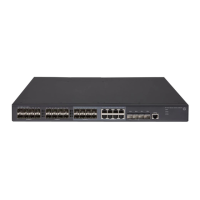
